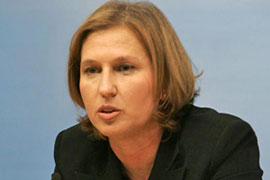Key players at the talks
A look at the major figures who will be in Maryland.

 |
| Bush says he wants the peace deal under his belt [AFP] |
George Bush, US president
His predecessors have tried and failed, but at the end of a presidential tenure marked by a relatively hands-off policy on the Israeli-Palestinian conflict, Bush hopes to be the US leader who finally succeeds in brokering a peace agreement.
His critics call it too little too late, but Israel and the Palestinians have both expressed interest in arriving at a deal before Bush leaves office in January 2009.
Ehud Olmert, Israeli prime minister
Once a staunch opponent of giving up territory for peace with the Palestinians, Olmert now favours withdrawing from most of the occupied West Bank.
But members of his ruling coalition are less keen on territorial concessions and could severely weaken his ability to negotiate.
He has made it clear he doubts the ability of Mahmoud Abbas, the Palestinian president, to shepherd through a peace deal on the Palestinian side.
 |
| Abbas’s lack of influence in Gaza is likely to effect his ability to broker a peace deal [AP] |
Mahmoud Abbas, Palestinian president
Elected in 2005 to succeed Yassir Arafat, the Palestinians former leader, Abbas has enjoyed redoubled Western backing since Hamas seized control of the Gaza Strip in June.
Abbas now runs his cabinet from the West Bank, but his lack of influence in Gaza raises questions about his ability to carry out a peace deal.
He has talked of a Palestinian state in the West Bank, east Jerusalem and Gaza Strip.
Condoleezza Rice, US secretary of state
Since June, Bush’s foreign policy chief has visited the Middle East eight times.
Success could help to deflect the widespread criticism the Bush administration has taken over its Iraq policy.
 |
| Blair will be at the talks in his capacity as the Quartet’s Middle East envoy [AP] |
Tony Blair, Middle East Quartet envoy
The former British prime minister’s new role as the Quartet’s envoy is to bolster the Palestinian economy and governing bodies in preparation for the establishment of a Palestinian state.
As the representative of the Quartet of Middle East negotiators – made up of the US, EU, UN and Russia – his official mandate is limited to these two areas, but he is in a position to use his good relations with Israel and Bush to help the process along.
Ahmed Qureia, chief Palestinian negotiator
A former Palestinian prime minister, Qureia has logged hundreds of hours with Israeli negotiators since 1993, when secret meetings in a farmhouse near Oslo, Norway, led to a breakthrough accord of mutual recognition between Israel and the Palestinians.
 |
| Livni initially rejected a compromise but now backs the creation of a Palestinian state [AP] |
Tzipi Livni, Israeli foreign minister
Israel’s top diplomat has led negotiations with the Palestinians ahead of the summit.
Like Olmert, she has moved from rejecting compromise with the Palestinians to advocating the creation of a Palestinian state.
Saud al-Faisal, Saudi Arabia’s foreign minister
Though he has said he will not join in any stage-managed Arab-Israeli handshakes, al-Faisal will be present.
Saudi Arabia does not have diplomatic relations with Israel, but its participation is seen as crucial to the gathering’s success.
| …and those not invited |
|
The conference highlights a key fear of the West and some Arab states – that Islamic groups could gain an increasing hold in the Middle East. In that respect, other key figures include: Khaled Meshaal, Hamas leader Mahmoud Ahmadinejad, Iranian president |